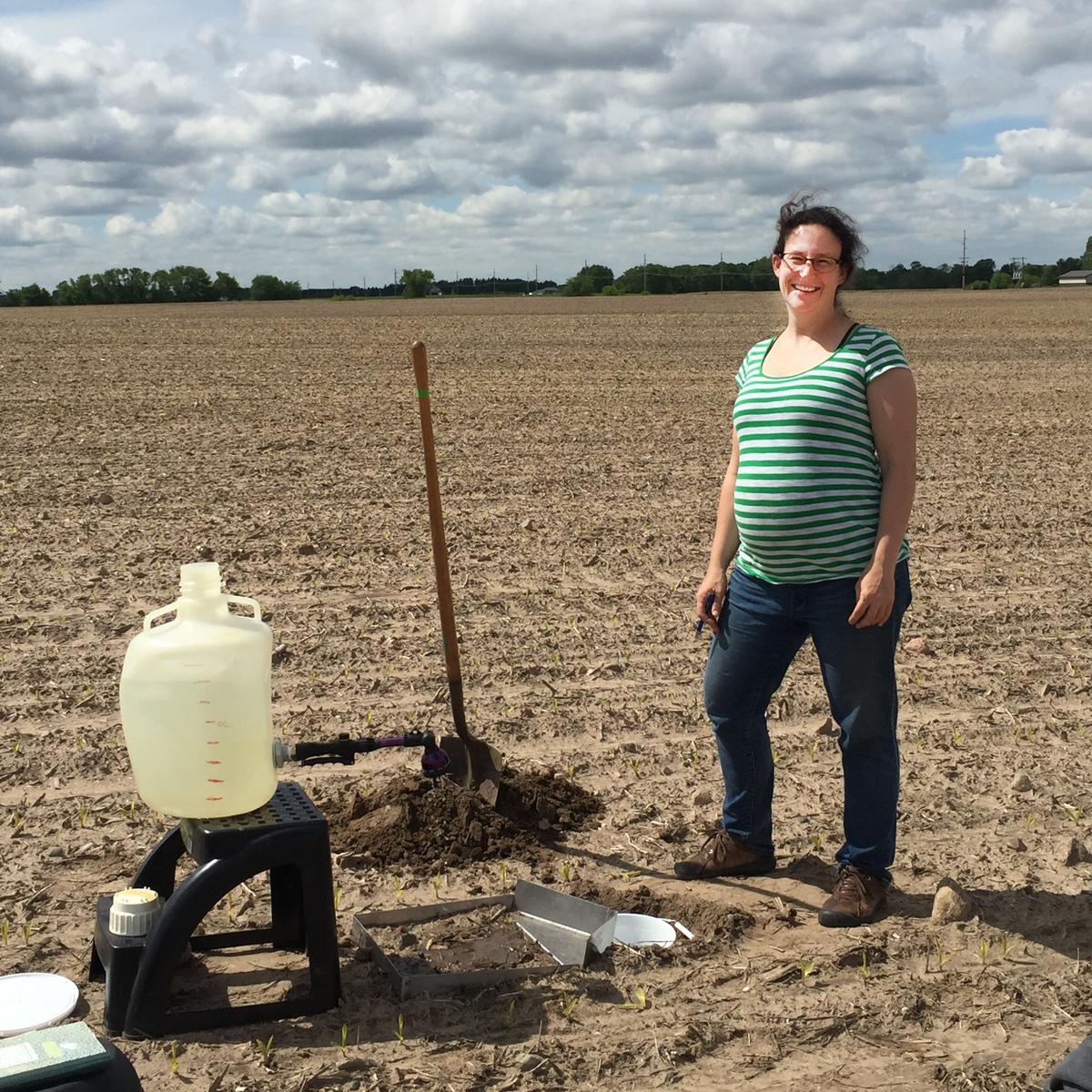There is huge potential to improve soils, and thereby improve soil related ecosystem services such as climate change adaptation and mitigation, through innovations in agricultural management. This page lists general work in this area. To learn more about our Kernza® Intermediate Wheatgrass research, see the Kernza and Perennial Agriculture page.
Specific projects:
- The use and timing of cover crops in organic high tunnels to improve soil and mitigate greenhouse gas emissions. This work also includes economica analysis to ensure that any sustainability solution is also economically feasible for growers. This work is being performed in collaboration with Julie Grossman and Hikaru Peterson, in the departments of Horticulture and Applied Economics, respectively.
- Optimizing Soil Health Indicators for Cold Climates. I have worked with the Minnesota NRCS office to conduct a large on-farm trial (25 farms in Minnesota) to test the efficacy of their incentive program to build soil health. The newest funding for this area of research is for another set of on farm samplings in collaboration with NRCS, The UMN Water Resources Center, and Nic Jelinski and Anna Cates in the UMN Department of Soil, Water, and Climate. In 2019-2021 we will be sampling another set of farms across Minnesota, doing economic surveys, and exploring why management for soil health yields such variable results.
- Soil Health Management as a tool for Climate Adaptation. Soil quality and soil health improve many aspects of soil functionality, including the ability to both hold and process soil water. The natural implication is that improving soil quality can also improve the ability of the soil to withstand floods and droughts, major consequences of climate change. On the survey style projects describe above where we assess the efficacy of on farm management strategies to improve soil health, I have also conducted large storm simulations to test this concept.
- There is increasing evidence that long term agricultural management changes the capacity of soil microbial communities to process and store soil complex carbon. In collaboration with Dr. Kathryn Docherty at Western Michigan University, we are conducting experiments to understand how tallgrass prairie restoration and climate adaption can be improved through purposefully restoring soil microbial communities for carbon storage functionality.
